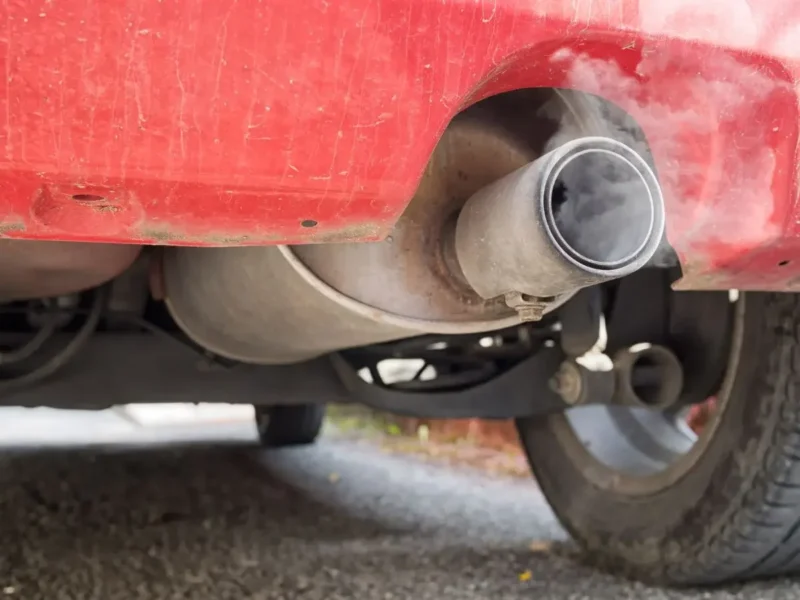Diesel Engine Exhaust Emissions are linked to lung cancer and other health risks. Learn how exposure in workplaces like mines and truck yards can be monitored and controlled to protect workers’ health
Diesel Engine Exhaust Emissions
Exhaust fumes from diesel engines do cause cancer, a panel of experts working for the World Health Organization said at a meeting this summer. It concluded that the exhausts were definitely a cause of lung cancer and may also cause tumours in the bladder. It based the findings on research in high-risk workers such as miners, railway workers and truck drivers.
[Are you looking for support with your Medium Combustion Plant Directive Permit? – find out more]
The International Agency for Research on Cancer (IARC), a part of the World Health Organization, had previously labelled diesel exhausts as probably carcinogenic to humans. It is thought people working in at-risk industries have about a 40% increased risk of developing lung cancer.
The report merits serious attention and action by K manufacturers, employers and regulators. Those working in environments where diesel exhaust fumes may be present at significant levels should be concerned. Recently the Health and Safety Executive produced a document that ranked diesel exhaust fumes as the 6th most important workplace carcinogen. It estimated 652 lung cancer and bladder deaths each year from work exposure to diesel exhaust fumes, with over 100,000 people exposed to diesel exhaust fumes at work. It is to be hoped that the HSE will now quickly produce new information leaflets on diesel exhaust fumes and increase its activities on prevention of exposure.
However it is known that lung cancer is caused by multiple factors and that other things such as smoking are far more deadly. The people most at risk are those whose jobs expose them to high levels of diesel exhaust fumes, such as truck drivers, mechanics, or miners. For the man on the street, nothing has changed, it’s a known risk but a low one for the average person, so people should go about their business as normal.
Research has indicated that the particulate component of the diesel exhaust fume has the potential to cause most harm. The particulate fraction of diesel exhaust fume consists mainly of very small particles which can reach the deep parts of the lungs. When clumped together the particles consist of an irregular stacked graphitic structure referred to as elemental carbon. The graphitic nature and high surface area of these particles means they have the ability to absorb hundreds of organic substances (organic carbon) originating from the unburned fuel, lubricating oils and the compounds formed in the complex chemical reaction during the combustion cycle. The gaseous phase of diesel exhaust consists largely of the same gases found in air, such as nitrogen, oxygen, carbon dioxide and water vapour, and is thus less hazardous.
At present in the UK there are no Workplace Exposure Limits for Diesel Engine Exhaust Emissions. However, under the Control of Substances Hazardous to Health regulations (COSHH), Diesel Engine Exhaust Emissions are classed as a substance hazardous to health and as such it is recommended that employers prevent or reduce workers exposure as much as is reasonably practicable.
Diesel Engine Exhaust Emissions in the workplace
Potential for exposure to diesel particulate fumes exists whenever workers are in close proximity to operating diesel equipment. In many cases the fact that the equipment is operating in the open environment, significantly reduces the potential for excessive exposures. Conversely, where diesel vehicles and equipment are used in confined areas (e.g. underground mines, ships’ holds, tunnels) there is a significant risk of exposure.
When undertaking risk assessments on the exposure to Diesel Engine Exhaust Emissions, simple observations in the workplace may provide a clue to the extent of the exposure at various times. The full assessment of the specific concentration of Diesel Engine Exhaust Emissions in the workplace is complex and should only be undertaken by trained occupational hygienists.
Experts in Diesel Engine Exhaust Emissions
Envirocare can provide assistance by carrying out independent air quality monitoring within the working environment which can provide crucial data in aiding the preparation of your COSHH risk assessments. Our expert technical services include:
- Assessing operative exposure to hazardous substances to ensure levels are not above permitted Workplace Exposure Limits.
- Recommendation of further control measures to be put in place in order to reduce the risk of ill health to your employees including selection of appropriate PPE.
- Observation of working practices and recommendations to ensure that you meet your obligations in reducing exposure to as low as is reasonably practicable.
- Provision of health & safety plans and risk assessments of the working environment and working with the site management to ensure legislative compliance.
- Testing of any ventilation and extraction systems to ensure legislative compliance.
Call us on 01274 738668or fill out our Envirocare Enquiry Form for any queries regarding Air Quality Monitoring, Air Quality Assessments, Diesel Engine Exhaust Emissions or if you feel that you could benefit from any of our services in this field.







